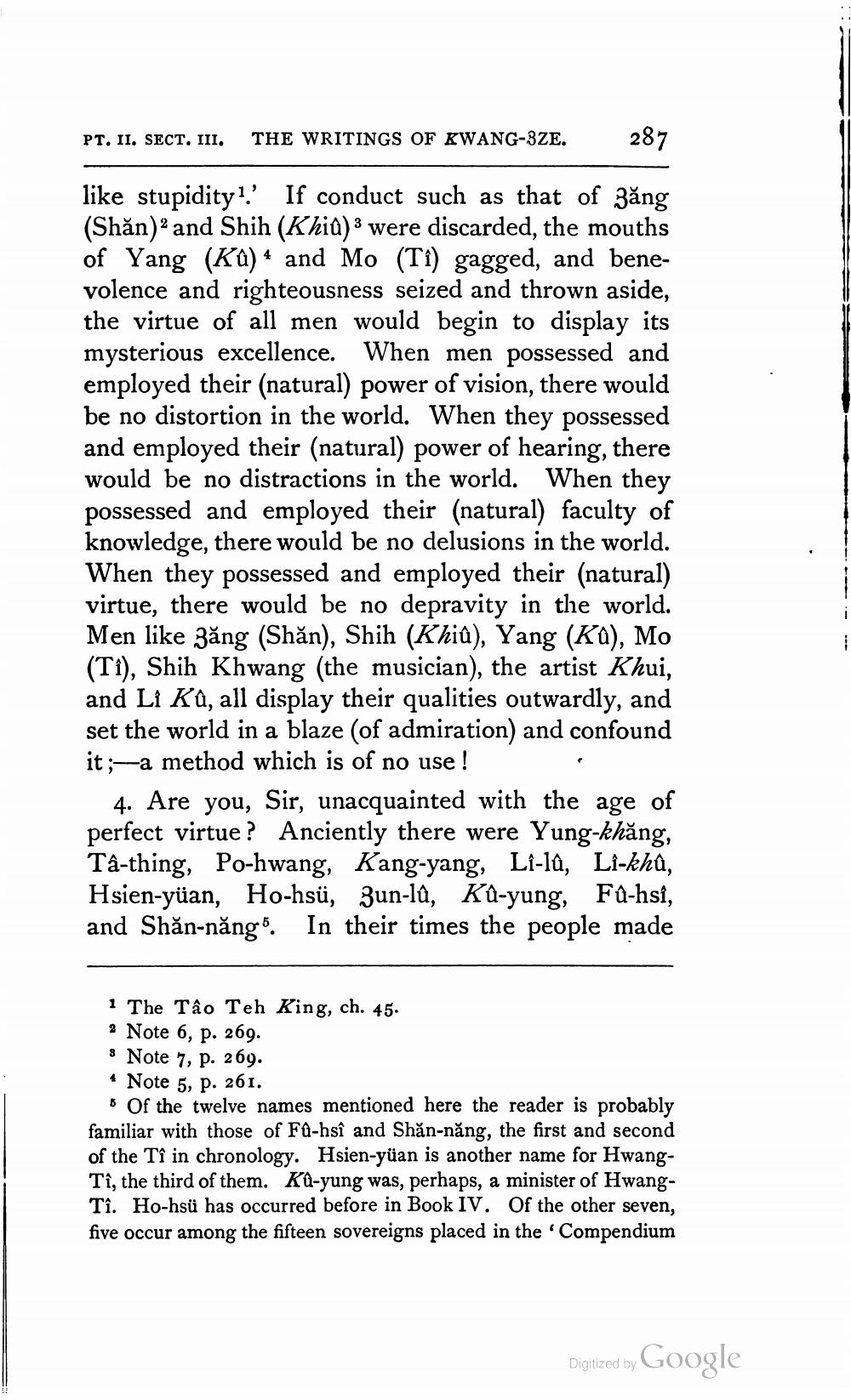________________
PT. II. SECT. III. THE WRITINGS OF KWANG-BZE.
287
like stupidity?' If conduct such as that of 3ăng (Shăn) and Shih (Khid) were discarded, the mouths of Yang (K) 4 and Mo (Tỉ) gagged, and benevolence and righteousness seized and thrown aside, the virtue of all men would begin to display its mysterious excellence. When men possessed and employed their (natural) power of vision, there would be no distortion in the world. When they possessed and employed their (natural) power of hearing, there would be no distractions in the world. When they possessed and employed their (natural) faculty of knowledge, there would be no delusions in the world. When they possessed and employed their (natural) virtue, there would be no depravity in the world. Men like đăng (Shăn), Shih (Klia), Yang (KA), Mo (Ti), Shih Khwang (the musician), the artist Khui, and Li Kū, all display their qualities outwardly, and set the world in a blaze (of admiration) and confound it;-a method which is of no use!
4. Are you, Sir, unacquainted with the age of perfect virtue? Anciently there were Yung-khăng, Ta-thing, Po-hwang, Kang-yang, Li-la, Li-khu, Hsien-yuan, Ho-hsü, Zun-lû, Kû-yung, Fû-hsi, and Shăn-năng 6. In their times the people made
1 The Tâo Teh King, ch. 45. 2 Note 6, p. 269. * Note 7, p. 269. * Note 5, p. 261.
Of the twelve names mentioned here the reader is probably familiar with those of Fu-hsî and Shăn-năng, the first and second of the Tî in chronology. Hsien-yüan is another name for HwangTi, the third of them. Kd-yung was, perhaps, a minister of HwangTî. Ho-hsü has occurred before in Book IV. Of the other seven, five occur among the fifteen sovereigns placed in the 'Compendium
Digitized by Google




